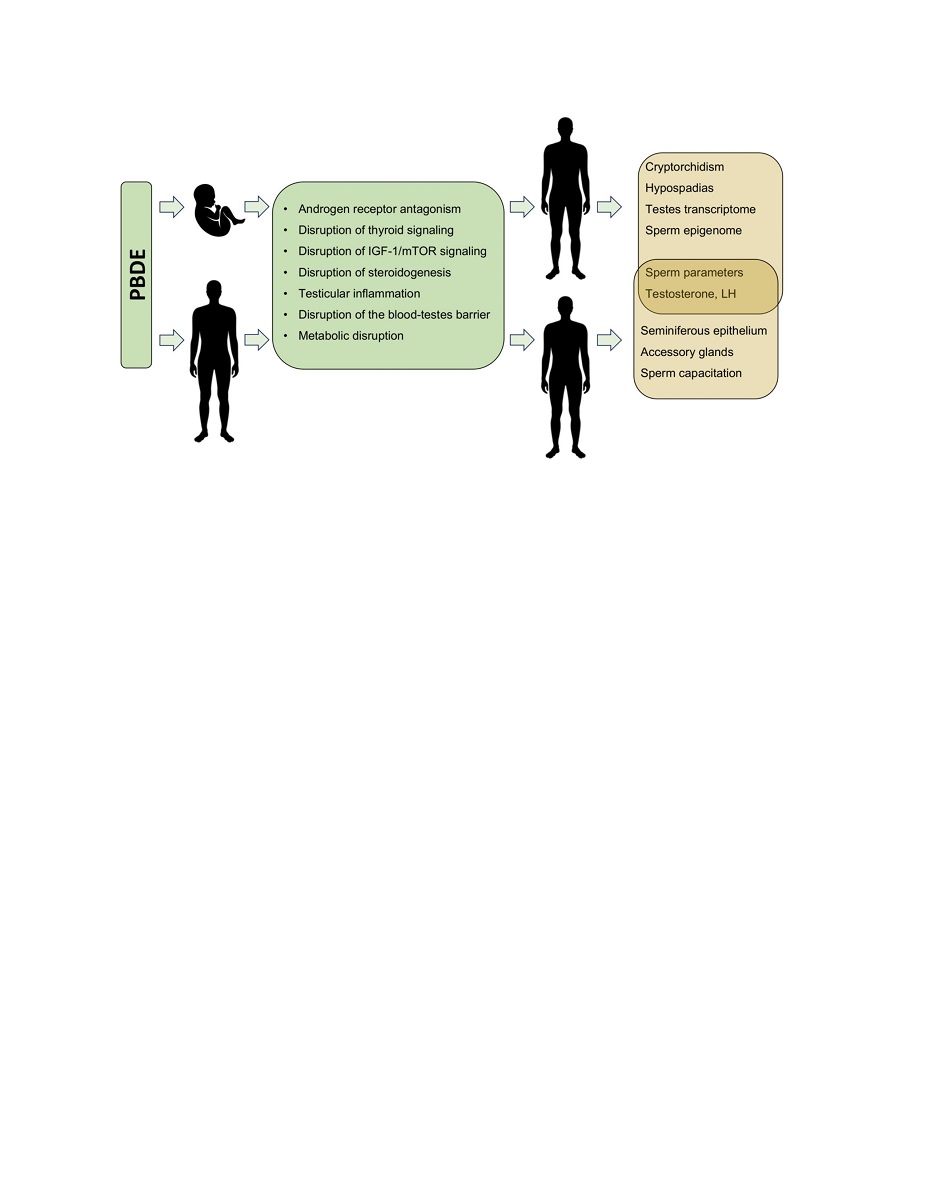Polybrominated diphenyl ethers (PBDE) are a group of flame retardants used in a variety of artificial materials. Despite phasing out in most industrial countries, they persist in the environment and human tissues due to their persistence, lipophilicity, and bioaccumulation. Populational and experimental studies demonstrate male reproductive toxicity of PBDEs including increased incidence of genital malformations (hypospadias and cryptorchidism), altered weight of testes and other reproductive tissues, altered testes histology and transcriptome, decreased sperm production and sperm quality, altered epigenetic regulation of developmental genes in spermatozoa and altered secretion of reproductive hormones. A broad range of mechanistic hypotheses of PBDE reproductive toxicity has been suggested. Among these hypotheses, oxidative stress, disruption of estrogenic signaling, and mitochondria disruption are affected by PBDE concentrations much higher, than concentrations found in human tissues, making them unlikely links between exposures and adverse reproductive outcomes in the general population. Robust evidence suggests that at environmentally relevant doses, PBDEs and their metabolites may affect male reproductive health via mechanisms including AR antagonism and the disruption of a complex network of metabolic signaling.

